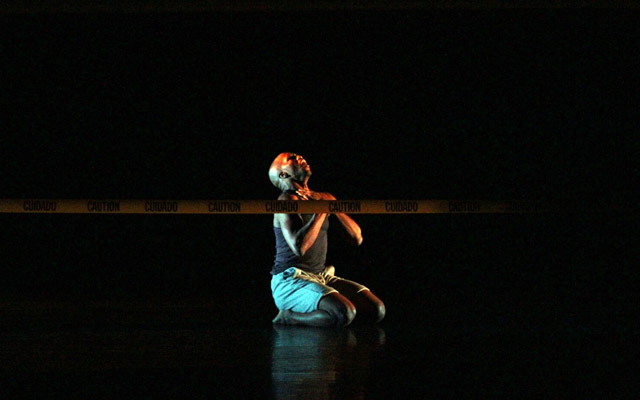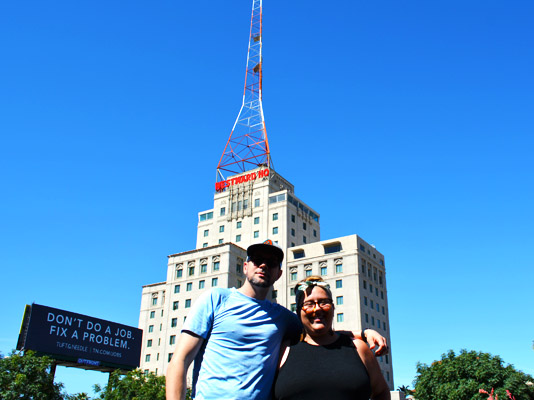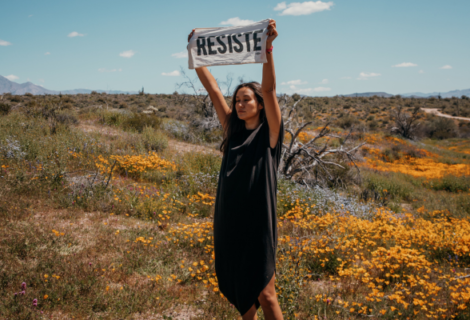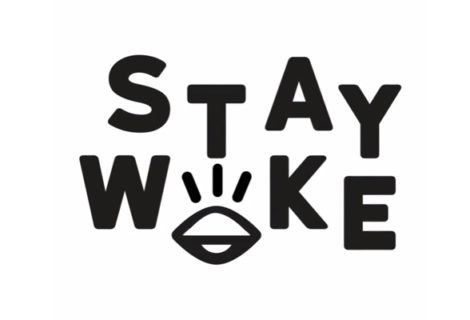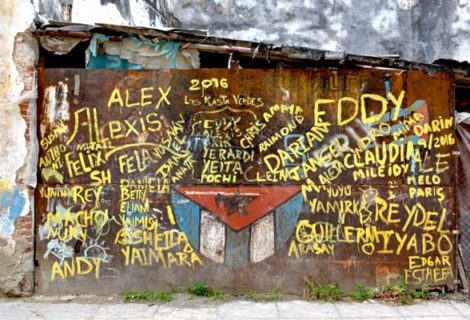From Spectators to Collaborators: How Soul Justice Project’s New Show Needs You Involved
“The universe is not made out of atoms. It is made out of stories,” said Muriel Rukeyser in her Speed of Darkness poem. We know storytelling is one of humans’ most basic and effective ways of communicating, and undoubtedly, our personal narrative parallels others, indistinct of who they are. Through it, we are reminded of our connectedness and that sometimes there’s still room for good ol’ honest human interaction and dialogue.
Soul Justice Project (SJP) is an awesome initiative that curates interdisciplinary performances merging politics, dance, spoken word, and music. It provides a platform for marginalized and silenced voices.
Their shows are always a mindfuck. Do you love drama and literature? They’ll make your toes curl. Music your thang? Your ears will ejaculate. Dance anyone? Your soul will break through its cocoon.
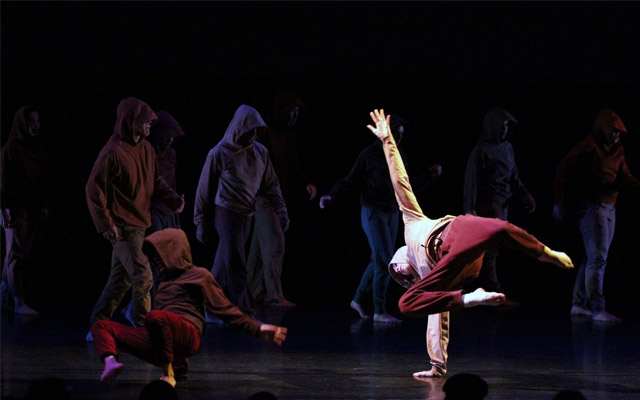
SJP’s productions are unmatched; no one does what they do. Photo Courtesy of SJP.
Pendulum, their new show, exposes the lives of seven Americans living on the margins of democracy post-election night. The show was inspired by Supreme Court Justice Ginsburg’s quote: “The true symbol of the United States is not the eagle; it’s the pendulum—when it swings too far in one direction, it will swing back.”
“…And it swung back real hard this time,” says Xanthia Walker, co-artistic director for Soul Justice Project. “Something that has come out of this situation and is very powerful is that people speak from a middle space. Whether it’s Hillary or Trump in the presidency, people’s perceptions and positions haven’t changed much, and under Obama, things weren’t great for everyone either.”
According to Tomás Stanton, the other half of this project’s brain, politics has always been kooky if you pay close attention, and folks who consider themselves living on the margins of democracy never really feel comfortable with any administration 100 percent.
This year’s show blends the aesthetics that characterize SJP. It creates a space for dialogue around issues that are particularly polarizing or hard to discuss. It explores the “narrative of the middle” and how imperative it is for us to listen to it.
“I believe people’s stories build bridges between all that distance, that wide middle space between the right and the left, and people see each other through those stories and understand one another. Hopefully, art can do that and inspire new ways of knowing,” Xanthia says.
Pendulum intentionally crossfades hip-hop, dance, music, and theater, unifying them with personal narratives crucial to the show.
“It is imperative to us that people’s own experiences mediate the larger social issues, so in this case, it’s really about the artists in the room and what they want to speak about,” she says.
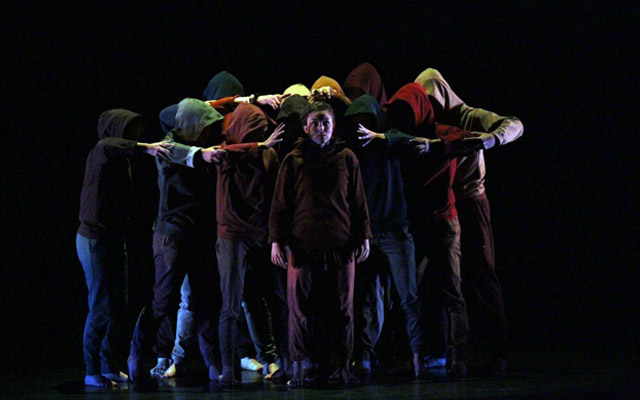
SJP presents interdisciplinary projects that address social justice issues. Photo: Courtesy of SJP.
Xanthia and Tomás are both artistic directors for this show and collaborate closely on the guidance and creation of the work. But really, it is an ensemble-driven process in which all the artists involved shape the final product based on ongoing discoveries.
Aside from their roles as artistic directors, this year, Xanthia is the director of the show, and Tomás is the playwright who compiles and edits everybody’s texts. Tomas is also in charge of the musical aesthetic for Pendulum, which is a crucial part of the show.
This is homespun Phoenikero hip-hop theater for social change at its best. Tomás says it isn’t happening anywhere else, and they’re very proud of that.
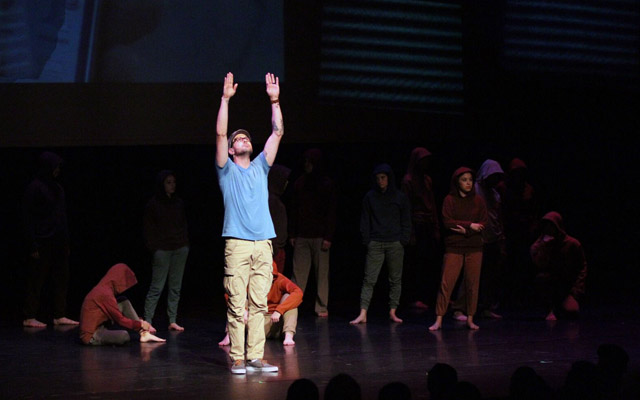
“The universe is not made out of atoms. It is made out of stories”– Muriel Rukeyser.
Your role as an audience member
“What we would like from the audience is to enter the theater as collaborators, not spectators. If something is moving you, express it,” Says Tomás. “Come with a level of vulnerability, and when the time comes to express your feelings during the dialogue, speak as honestly and openly as possible.”
At the end of the performance, the purpose is to engage in a dialogue. “Our purpose is not just to have the audience clap at the end and walk away saying ‘that was a dope show, I feel so good about seeing that show,’ and then return to their usual lives. We want to have an actionable-driven conversation about what to do next and what steps to take as community members,” explains Xanthia.
The show is filled with local talent, including Sean Avery (poet and performing artist), Anna Flores (poet), Carly Bates (music), Raji Ganesan (performing and teaching artist), Allyson Yoder (dance), and AJ Odneal (songwriter). It will also include Dahlak Brathwaite, a hip-hop theater practitioner based in Los Angeles, CA.
When: 5/18 & 5/19 8:00 p.m.
Where: Mesa Arts Center 1 E. Main St. Mesa, AZ 85201
How much: $15

